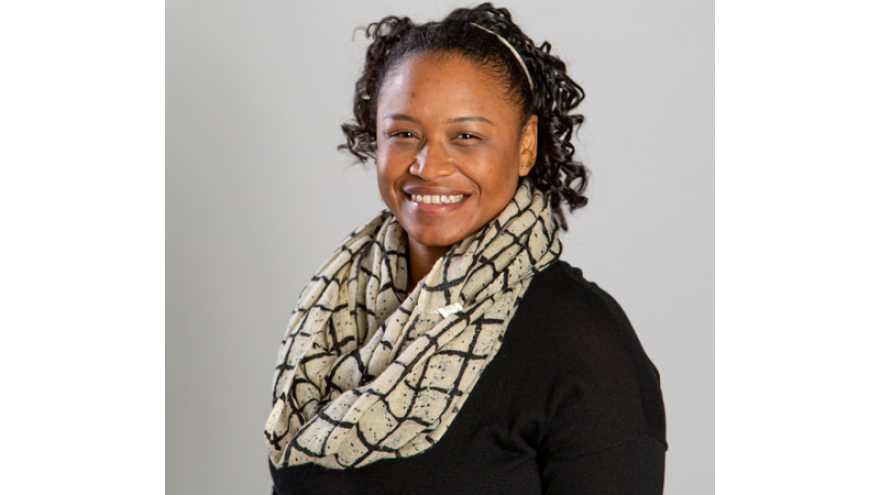Danielle is a Veteran of the US Army and Virginia Army National Guard having served 6 years first as a Military Intelligence officer post-graduation from the University of Virginia’s Army ROTC Cavalier Battalion, and later as a UH-60 Black hawk pilot completing a combat tour in Iraq prior to separating as she embarked upon starting the journey of parenthood. Danielle is passionate about veteran’s and active service member’s issues having lived them and also being the spouse of a veteran who served six years as an active duty Marine Corps Infantry Officer and graduate of the Naval Academy who completed a combat tour in Afghanistan. Danielle and her spouse both experience chronic pain, PTSD, and continue to serve the veteran community in a variety of ways in their personal and professional lives. Danielle is currently a mental health therapist working with the veteran population and their support systems in private practice who experience complex trauma, chronic pain, mood disorders, and other mental health needs. As a lifelong learner, Danielle is energized by learning more about the benefits of this important research and how it may serve the veteran community through work with the Veteran CAB.
Full Transcript:
Shelley Irwin: She's a veteran of the U.S. Army and Virginia Army National Guard. She served at least six years first as a military intelligence officer post-grad from the University of Virginia's Army ROTC Cavalier Battalion. Later, as aUH-60 Black Hawk pilot. That is where I put a lot of our emphasis n your life, Danielle Engel. Thank you for your service, glad you're here.
Danielle Engle :Thank you for having me.
SI: Yes, extended resume we'll get into. Yes, a journey of parenthood, a career as a mental health therapist where you do work with the veteran population who experience complex trauma, chronic pain, and mood disorders as well. I want to get into this, so here we are. When did any notion of Army service come into your life?
DE: Sure, yeah. Well, I have a long history of military service in my family. My mother before me, my grandfather before her. But it didn't come until later, maybe in middle school, high school, when I started looking at service academies and congressional, uh I guess nominations is what was required and you had to start early. So that's when it started to come to me.
SI: And I'm sure you could sing the Army fight song. We don't have to do that. But why the Army?
DE: Again, history. My mother was uh an army nurse and my grandfather before her was in personnel, human resources in the army.
SI: Yes, somebody to get right into your military intelligence services. What does this mean? How did you spend your day?
DE: Sure. So that was what I always wanted to do. I always wanted to go into Intel. When I was a little kid, I wanted to be like a forensic psychologist. And so this seemed like the most fitting MOS is what we call them. um And so the best part was going to school. Thereafter, how I spent my days was really mundane. It was leading people in doing the fun stuff, but I didn't get to actually do the fun stuff. But it's collecting and gathering intelligence, battalion commanders on anything from weather that's going to disrupt or um impact a mission to enemy threats in the area, um different types of terrorist organizations that can impact the mission you know, what they're motivated by, that sort of thing.
SI: And just an off the cuff question, a lot of this part of your life was confidential, under security, you had to kind of live your life uh with those who were in security.
DE: Sure, sure. Yeah. So it requires a uh top secret security clearance and, um and yeah, confidentiality of all materials and databases that we utilized.
SI: What was it like to fly a UH-60 Black Hawk?
DE: Oh man, that was the thrill of my life outside of parenthood, think. uh It was amazing. I did not know that I was as mechanically inclined as I am, was, I guess. I don't fly anymore, even though I have a license. And just being amongst the clouds, um looking down, uh planning missions, moving people and goods and weapons and and flying other missions that I probably shouldn't talk about, yeah, it was a thrill.
SI: Where did this happen? um So I went to school uh at Fort Roker, Alabama. It was the base, so I did a lot of flying there, but thereafter then transitioned to an aviation unit, air assault unit out of Virginia. uh And then we went to, uh we mobilized to uh the southern region of Iraq, uh a base called Um Qasr between Um Qasr and Talil.
SI: What's it like to receive orders to locate to Iraq?
DE: um You know, it was uh expected the time, time and grade, um you know, 9 11 had occurred while I was still in high school. And so I knew what I was getting into. um So, yeah, expected, I guess, is how I would put that still nerve wracking. um A lot of nervousness among my family that kind of impacted how I felt about going um but I knew what the call was.
SI: May we discuss the power you have as a role model, a Black Hawk pilot as an African American woman. Would you talk about this?
DE: Sure. I guess in the midst of it, I did not recognize the power of that. um It was actually a mission I was flying out of Tallil and one of our crew chiefs came up to me, also African American, um Black crew chief, um wasn't a part of my specific company, but I had the joy of flying with him and we were pre-flighting the aircraft and he looked at me and he said, do you know how historic this is? And that's kind of when it hit me. I'm getting emotional now thinking about it. um But yeah, I didn't realize it. I was just doing my duty. um And the good, bad, uglies back to the good of a combat tour.
SI: What kept you focused as a woman?
DE: Yeah, so another role um that I had, didn't ask for it, was voluntold to do it was um being a unit victims advocate. So being um one of few females, really one of very few female officers um and pilots uh I was tasked with um training and then meeting with anyone in the area that was required, needing support from assault or harassment that needed to file a formal or informal complaint. And so that was my first kind of exposure to the counseling field uh while forced upon me. It was really impactful for me supporting people who were experiencing uh harassment and assault within the ranks, sometimes outside of the ranks.
SI: We'll get back to that as it did take uh a turn in your life to chase. But I want you to talk about your spouse and the life you lived as a military personnel. and then motherhood came along.
DE: Sure. So my spouse, Ryan Engel, uh Marine Corps veteran, uh a Naval Academy grad. um So we met while I was at home uh in Virginia in between duty stations. uh And he was at Quantico. Marine Corps base training, which is where I grew up. And we met through a friend and the rest is history as he always says. But we were only together uh dating for a time before he switched duty stations and I switched duty stations. And so our whole courtship was long distance relationship. Switching duty stations means other places. Yeah. So we would drive and meet up and um spend time together in between. And then he deployed first and I stayed stateside at flight school and then he returned after nine months. He was in Afghanistan. And then um not shortly after he got back and then I had to leave and I went to Iraq. So we were kind of ships passing in the night throughout our dating relationship until post-deployment where we got married um and were with child and the rest is history, sort of.
SI: And yet, you and your spouse both experienced chronic pain, PTSD, and obviously turning those into positives. So what happened? What turned into your adventure into a PTSD diagnosis?
DE: Yeah, so I think there was quite a bit of vicarious trauma in supporting people who had been experiencing sexual harassment and assault, had had my own experiences with the same, not necessarily in combat, but throughout my time in the military. And so um my trauma is uh exacerbated by military sexual trauma or MST, as we call it. um And so that's been my experience in the military with some trauma prior to that in my youth and adolescence. So um just trying to make beauty from ashes there and um knowing that the power that I had in supporting other people during really difficult times in combat um when I came out of the military I wanted to fly. But that was really hard. It was really hard to be competitive with my flight hours. um I was grounded. We call it grounded when you become pregnant .You can't fly anymore and so you ride a desk. So I had a hard time with with kind of accepting that it was gonna be a while before I flew again. And then after in motherhood, wanting to fly, but reconciling, how do I do this like adulting parent motherhood thing um while trying to fly and get flight hours? It was just sticky. um It was kind of messy. um decided to go into the counseling route and look at furthering my education in that regard.
SI: Yes. And what was that journey as you became a mental health therapist?
DE: Yeah, I mean, it was there was some it was arduous at times. um I was a parent. I was a spouse, um but also a caretaker of uh my spouse, who is a veteran that also suffered PTSD. Right. So navigating parenthood and caretaking caretaking of myself, caretaking of my spouse um was really hard. Then there was also the pandemic that came in right at the end of my time in school that kind of threw things off. So it took me six years to get through um my master's program with all of that kind of said and done. um Yeah.
SI: And yet what kept you going? I think wanting to help people, wanting to help people, but also like continued service. That is at the crux of um wanting to be in the military. It's at the crux of um wanting to be human on this planet, helping others and using um the things that I've experienced as an outlet to empathize with other people and help them.
DE: When does West Michigan enter your life? Yeah, when did we move here? um When my, ah actually after, short after pregnancy um and birth, we relocated to Michigan. So my spouse is a Michigander. He says, I can't claim to be a transplant anymore because we've been here too long. So my eldest was born. um We tried a stint in Indiana um being brand new veterans and experienced the hardship of adjustment um to parenthood and being veterans, no longer active duty service members. And we needed to move where we had access to support family, the like. So. uh moved here to Reed City, where my spouse is from, lived there for a time, um then moved to Marquette in the UP for a time um while I was still in school, uh master's degree school. And then finally, just as the pandemic was hitting, we relocated to Grand Rapids, Michigan. uh And that was a result of my spouse uh works for the Grand Rapids Home for Veterans and had been for a long time. And so uh he transitioned roles and um Grand Rapids was the place to be, so we moved here to a family home.
SI: Take me half a step back to that brand new veteran status.
DE: Yeah. So there is a, and I think uh many veterans might experience similar, um you know, a similar kind of experiencer vibe. There is a space of, um yeah, I don't know what to call it. It's just adjustment. It's adjustment and it's significant. There is a space of needing to find what your purpose or your mission is outside of the one that um either has been dictated to you for many years or that you worked so hard to be in and choose when it comes to the military or a particular MOS. um And so coming out of um having Uncle Sam tell you what to door do everything for you um from healthcare to um be here at a certain time, um you know, these are your orders to, oh, this is on me. This is on me now. get to, um I have to figure this out. ah And so that was pretty jarring for us, especially as brand new parents at the same time.
SI: And yet, a mental health therapist working with the veteran population and. I understand their support systems, what, in private practice, who do experience complex trauma, chronic pain, mood disorders. So you're still in the field, right?
DE: Yeah, that's a great way to put it. um And I have heard it said that way to me before, which is really helpful. um I'm still serving.
SI: Yes. What do you say to the Danielle Engel who has just uh what do you do, you hang up your badge or what? Return to civilian status.
DE: Yes. um That all of the hardship that you're experiencing is welcome and it's common um that you're not alone here, um but also that this is like a significant life change, right? So it is like uh a retirement is like um
a move across the country. This is significant transition and we need to hold space for that.
SI: You are energized by learning more about the benefits of what important research and how it serves the veteran community through work with, I understand the veteran community advisory board. So again, talk a little bit about this research angle.
DE: Sure. the veteran community advisory board is a group of veterans that have a vested interest in particularly right now, how cannabis um and sometimes psychedelics can help with treatment of PTSD, uh chronic pain, and other presentations that are prevalent within the veteran community. And so through the University of Michigan, uh they have a chronic pain and fatigue research center uh annex uh that engages in this research right now, particularly with cannabis use and a variety of other CBD products and how it supports veterans with chronic pain.
SI: So what's the future of service in the US Army? First of all, will there be another generation of Engles?
DE: If you ask my spouse, he'll say yes. But we've stopped kind of, you know, we want them to do whatever they want to do. We do have three kiddos, three little boys with lots of different interests. So we'll see. We'll see. The future of the Army or the Armed Forces, uh I mean, as a human and an individual and a veteran, I think is kind of unseen. I think the mission is changing in our nation and it's really uncertain, in my opinion.
SI: What does Veterans Day, Veterans Month mean to you?
DE: It's a time of recognition, in my opinion, of celebration of service uh for veterans' current past. Yeah, it's a time of reverence, I feel like.
SI: Wonderful. One more Black Hawk question. What was it like that first time you got into the seat and you pushed the start button and you put your headphones on and it was all you?
DE: Oh man, I mean, I think I know my heart was racing and I thought to myself, I gonna be able to do this? It usually starts with just picking it up to a hover. um But there's a lot involved with the preflight check and um before you even pick it up, all of the systems that you're checking and looking in the cockpit. um And so, ah yeah, my heart was racing and I was just squeezing the collective and the cyclic you have together. And so, yeah, just clutch tight, white knuckling it. This is what my some people might say.
SI: Did you have a call sign?
DE: You know, we did, we did in combat um and it wasn't, it was not by choice, um but it was Awake. And so it was awake. And then the last two digits of um the, tail number of the aircraft. So it was like Awake five seven or awake three six. And that's how we would call in when we come to land or talk between, um, aircrafts with each other because we always flew in a flight of two.
SI: Wow, Danielle Engel, thank you for your service, veteran of the U.S. Army, Virginia Army National Guard, but we have you here in West Michigan. So again, thank you and appreciate you sharing your story.
DE:Thank you, Shelley, appreciate you.






